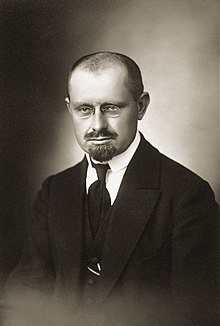Aleksandras Stulginskis
| Aleksandras Stulginskis | |
|---|---|
 |
|
| 2nd President of Lithuania | |
|
In office June 19, 1920 – June 7, 1926 |
|
| Preceded by | Antanas Smetona |
| Succeeded by | Kazys Grinius |
| Acting President of Lithuania | |
|
In office December 19, 1926 – December 19, 1926 |
|
| Preceded by | Jonas Staugaitis |
| Succeeded by | Antanas Smetona |
| Personal details | |
| Born |
February 26, 1885 Kutaliai, Kovno Governorate, Russian Empire (now Lithuania) |
| Died | September 22, 1969 (aged 84) Kaunas, Lithuanian SSR, Soviet Union |
| Nationality |
|
| Political party | Lithuanian Christian Democratic Party |
Aleksandras Stulginskis [ɐlʲɛkˈs̪ɐ̂ˑn̪d̪rɐs̪ s̪t̪ʊlʲˈɡʲɪ̂n̪ʲs̪ʲkʲɪs̪] (February 26, 1885 in Kutaliai, in Šilalė district municipality near Tauragė, Kovno Governorate, Russian Empire – September 22, 1969 in Kaunas) was the second President of Lithuania (1920–1926). Stulginskis was also acting President of Lithuania for a few hours later in 1926, following a military coup that was led by his predecessor as President (Antanas Smetona) and which had brought down Stulginskis's successor, Kazys Grinius. The coup returned Smetona to office after Stulginskis's brief formal assumption of the Presidency.
He began his theological studies in Kaunas and continued in Innsbruck, Austria. However, he decided not to become a priest and moved to the Institute of Agricultural Sciences in University of Halle. He graduated in 1913 and returned to Lithuania. There he started to work as a farmer. He published many articles on agronomy in Lithuanian press. In 1918 he started to publish journals Ūkininkas ("Farmer") and Ūkininko kalendorius ("Farmer's Calendar").
During World War I he moved to Vilnius. He was one of the founders of the Lithuanian Christian Democratic Party and the head of its Central Committee in 1917. He signed the memorandum for the president Woodrow Wilson, addressing the question of the recognition of the Lithuanian statehood by the U.S.. Contrary to the Antanas Smetona's views, Stulginskis was oriented towards the Entente. He was one of co-organizers of the Vilnius Conference. After, he was elected to the Council of Lithuania.
...
Wikipedia
